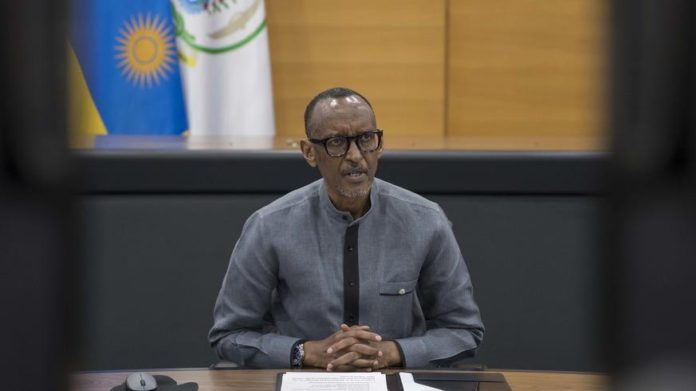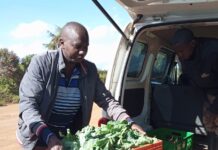By Mary Mwendwa
Nairobi, Kenya: African leaders recently joined efforts to promote innovation in agriculture, pointing out the importance of improving agricultural research, financing, and Innovation.
“Africa’s food situation is fragile because of several barriers to trade. The COVID-19 pandemic is an added challenge. We need to increase research capacity. We need to strengthen partnerships with less impact to the environment and we need to trade more,” said President of Rwanda, Paul Kagame, during a High-Level Dialogue on Feeding Africa 2021, jointly convened by the African Development Bank (AfDB)and the International Fund for Agricultural Development (IFAD).
The April 29th-30th 2021 event was convened to highlight the role of climate-smart technologies and innovation in improving food production and nutrition in Africa. The African Heads of State and Government, who took to the podium of the virtual two-day Summit, reiterated the close links between financing, partnerships, and investments in innovation to spur agriculture.
African Development Bank President Akinwumi Adesina said the bank had invested heavily in improving agricultural production through the provision of quality seeds to farmers and was looking forward to ways of availing better agricultural technologies through mobile phones.
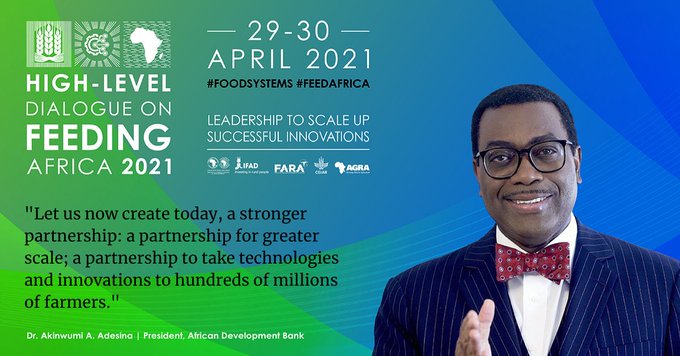
During the Summit, dedicated to addressing the economic crisis caused by the coronavirus pandemic, the Bank President said to fully recover from the pandemic, Africa must rapidly upscale efforts to boost food production.
“Without food, medicines do not work. Without nutrition, vaccines are not effective. We must produce food on less land. We must conserve forests. And we must ensure sustainability and climate resilience,” Adesina said.
“Technologies to feed Africa exist. What has been lacking has been a comprehensive approach to take them to scale – with accountability for impacts. To take technologies off the shelves and get them into the hands of farmers, there is a need for technology development and delivery platform that works at scale.”
President Felix Tshisekedi of the Democratic Republic of Congo (DRC), the current Chairman of the African Union, said the time to create new methods of innovation in the agricultural sector had reached.
He said the DRC, with an annual spend of US$200 million on food imports, was intensifying its efforts to benefit from agricultural sector schemes introduced by the Bank, which target improved yields in fisheries, rice production, and aqua-culture.
“Agriculture and food chain is a major pillar of our food security plan. We have taken some measures to exempt importers of farm machinery to improve the sector,” President Tshisekedi said.
President of Botswana, Mokgweetsi Masisi, said his country identified a technology-driven agricultural sector, adopting strategies to improve nutrition as part of the long-term priorities to achieving climate-smart agriculture in Botswana.
The President of Sierra Leone Julius Bio said his country, on the other hand, viewed the COVID-19 pandemic as a barrier to the improvement of the sector but the government would lay emphasis on improving agricultural extension services, working to obtain information on soil quality, and improving farm inputs to increase harvests.
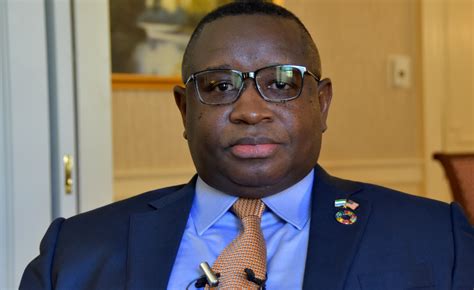 “Food supply chain challenges and the lack of proper institutions within the agricultural sector required improved governance in the sector which would be important to ensure the small-holder farmer was cushioned from exploitation” said President Bio.
“Food supply chain challenges and the lack of proper institutions within the agricultural sector required improved governance in the sector which would be important to ensure the small-holder farmer was cushioned from exploitation” said President Bio.
To address the shortfalls, President Bio noted that Sierra Leone was focusing on creating centers for the mechanization of agriculture, certification of seeds, and the improvement of the national budgetary allocation for agriculture to reach the 10% sought under the Maputo Protocol.
President Bio said at 7% of the national budget going to agriculture, Sierra Leone was looking to improve its agriculture through new technologies including electronic wallets and the availability of agricultural technologies to improve food production.
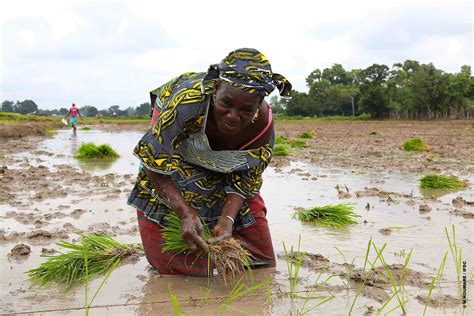
AfD Bank President Adesina said investment in technology was too critical to the success of the sector that the Bank had invested in the Technologies for African Agricultural Transformation (TAAT), a technology and innovation delivery platform supported by the Bank and the Bill and Melinda Gates Foundation, IFAD and several other partners.
Launched just two years ago, the TAAT platform has delivered heat-tolerant wheat varieties to 1.8 million farmers in seven countries, increasing wheat production by 1.4 million metric tons, with a value of $291 million.
Across Sudan and Ethiopia, hundreds of thousands of hectares are now planted to the heat-tolerant wheat varieties. When drought hit the Southern Africa region in 2018/ 2019, TAAT came to the rescue.
It deployed drought-tolerant maize varieties which were cultivated by 5.2 million households on 841,000 ha. As a result, farmers survived the drought, from Zimbabwe, Malawi, and Zambia, allowing maize production to expand by 631,000 metric tons, with a value of $107 million, Adesina said.
IFAD President Gilbert Houngbo, said an investment of US$85 billion was required in Africa by 2030 to finance agriculture even though financing from the Official Development Assistance (ODA) had remained flat and incapable of financing new infrastructure in agriculture.
Former British Prime Minister, Tony Blair, the Executive Chairman of the Institute for Global Change, said African countries needed to create the right environment for the use of private capital in the agricultural sector. He said governance should be organized to take advantage of the financing from the private sector to boost agriculture on the continent.

